
At AAIC 2025, the chief executive officer at ALZpath discussed the growing adoption of the company’s pTau217 antibody blood test for AD research, emphasizing its potential role in early detection. [WATCH TIME: 4 minutes]

At AAIC 2025, the chief executive officer at ALZpath discussed the growing adoption of the company’s pTau217 antibody blood test for AD research, emphasizing its potential role in early detection. [WATCH TIME: 4 minutes]

Here's some of what is coming soon to NeurologyLive® this week.
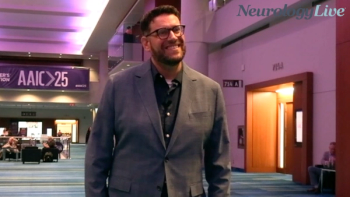
The principal scientist of neuroscience discovery at Merck presented preclinical data at AAIC 2025 supporting the development of MK-2214, an anti-tau antibody designed to slow or prevent the progression of AD. [WATCH TIME: 5 minutes]

Test your neurology knowledge with NeurologyLive®'s weekly quiz series, featuring questions on a variety of clinical and historical neurology topics. This week's topic is on the use of lithium to treat Alzheimer disease.

At the 2025 ATMRD Congress, Anissa Mitchell, LCSW, chief program officer at PMD Alliance, discussed immersive, patient-focused sessions aimed at improving clinicians’ empathy, communication, and understanding of Parkinson disease and related disorders.

A recent study reassured that triptans may be safe for migraine treatment, emphasizing the need for individualized assessments of cardiovascular risks.
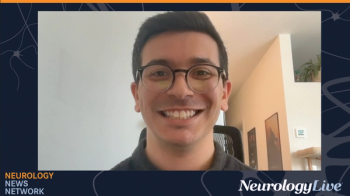
Neurology News Network. for the week ending August 16, 2025. [WATCH TIME: 4 minutes]

Take 5 minutes to catch up on NeurologyLive®'s highlights from the week ending August 15, 2025.
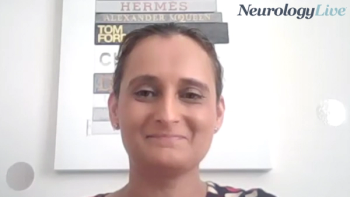
The medical director of CNS clinical cevelopment at AskBio discussed long-term data presented at ATMRD from the company’s phase 1b trial assessing the investigational gene therapy AB-1005 in Parkinson disease. [WATCH TIME: 6 minutes]
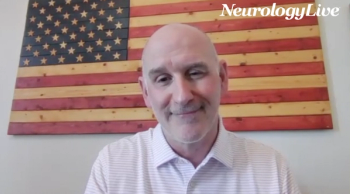
The Harold I. Nemuth Chair in Neurological Disorders at Virginia Commonwealth University discussed the next steps in advancing GLP-1s for idiopathic intracranial hypertension and the research necessary to further understand their therapeutic impact. [WATCH TIME: 3 minutes]

A new study reveals rituximab outperforms cladribine in managing MRI disease activity in relapsing multiple sclerosis over 4.5 years.
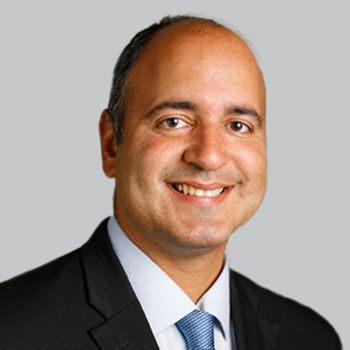
At AAIC 2025, Alberto Ramos, MD, FAAN, director of the sleep disorders program at the University of Miami, discussed the association between long sleep duration, specific sleep phenotypes, and progressive cognitive decline in Hispanic populations.
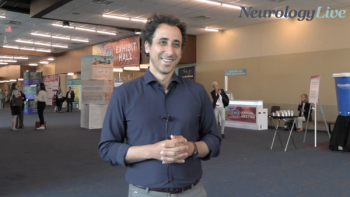
At CMSC 2025, assistant professor of neurology at the University of California, San Francisco discussed progress on the integration of biomarkers into clinical practice for multiple sclerosis. [WATCH TIME: 4 minutes]

Researchers unveil promising findings from the GABriella trial, exploring a novel treatment for prodromal Alzheimer's disease at AAIC 2025.
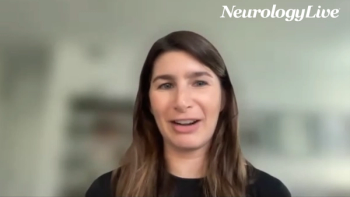
The clinical assistant professor in movement disorders at Jefferson Health outlined a patient-centered, lifestyle-first approach to managing Parkinson nonmotor symptoms. [WATCH TIME: 4 minutes]

A new study reveals higher rates of postpartum depression in women with multiple sclerosis, emphasizing the need for early screening and management strategies.

New study reveals that vormatrigine significantly reduces focal onset seizures, offering hope for improved epilepsy treatments at the upcoming International Epilepsy Congress.

The associate professor of neurology at Johns Hopkins Medicine previewed a 2025 AUPN panel exploring AI’s clinical, research, and educational applications, along with the ethical considerations shaping its responsible adoption. [WATCH TIME: 2 minutes]

Richard Kovacs, MD, PhD, chief medical officer for the American College of Cardiology, discusses interim XYLO trial results, highlighting how switching to low-sodium oxybate can significantly impact blood pressure and cardiovascular risk profiles in narcolepsy.

The chief medical officer at Acumen Pharmaceuticals discussed the benefits of using the blood-based p-tau 217 biomarker to improve screening accuracy and reduce patient burden in AD. [WATCH TIME: 5 minutes]

The cofounder and chief science officer of the Alzheimer's Drug Discovery Foundation recapped some of the notable recent developments in the Alzheimer disease field presented at the 2025 Alzheimer’s Association International Conference.

Sam Gandy, MD, PhD, director of the Center for Cognitive Health at the Icahn School of Medicine at Mount Sinai, discussed his presentation on detecting toxic amyloid-β oligomers and their role in AD pathology at AAIC 2025.

Novartis revealed promising phase 3 trial results for ianalumab, a potential first treatment for Sjögren’s disease, showing significant disease activity reduction.

Discover groundbreaking insights from the 2025 Alzheimer’s Association International Conference, featuring expert interviews on innovative treatments and diagnostics.

Catch up on any of the neurology news headlines you may have missed over the course of July 2025, compiled all into 1 place by the NeurologyLive® team.

New findings highlight the potential of sCD83 as a prognostic biomarker in NMOSD and MOGAD, supporting its role as both a therapeutic target and a marker of treatment response in these autoimmune diseases.

The Harold I. Nemuth Chair in Neurological Disorders at Virginia Commonwealth University detailed published findings on GLP-1 receptor agonists significantly improving outcomes and lowering mortality in idiopathic intracranial hypertension, regardless of BMI. [WATCH TIME: 5 minutes]

A recent meta-analysis reveals genistein's potential to enhance cognitive function in prodromal Alzheimer disease, urging further research for validation.

Here's some of what is coming soon to NeurologyLive® this week.
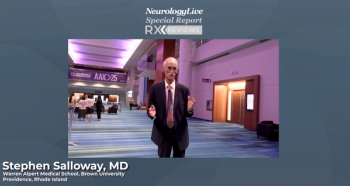
In the third episode, Salloway emphasizes the need for careful patient selection when prescribing donanemab to minimize serious risks, highlighting the value of the newly approved safer dosing regimen. Supported by Eli Lilly.